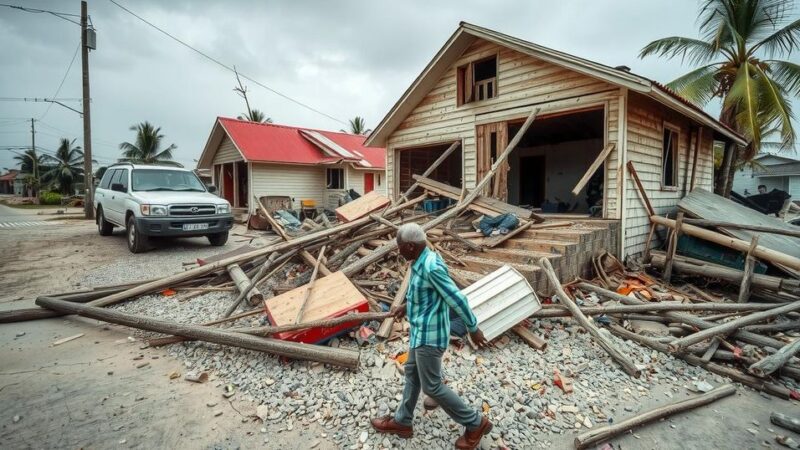The UN warns that climate change is worsening an already critical refugee situation, with a record 120 million displaced individuals. Concurrent climate hazards are leading to more frequent and severe displacements, and urgent investments are needed to mitigate these impacts. Without increased funding for adaptation and resilience in vulnerable communities, displacement is expected to escalate significantly.
The United Nations has reported a significant worsening of the refugee situation due to climate change, which is causing unprecedented displacement around the globe. As international climate discussions convene in Baku, the UN refugee agency has emphasized the role of rising global temperatures and extreme weather events in exacerbating displacement conditions. The interplay of climate shocks and conflict, particularly in regions such as Sudan, Somalia, and Myanmar, is pushing vulnerable populations into even more precarious situations. Filippo Grandi, the UNHCR chief, published a foreword noting that as extreme weather—including droughts and floods—increases in frequency and severity, displaced populations find themselves at the forefront of the crisis. Remarkably, a staggering 120 million people are currently forcibly displaced due to war and violence, with the majority remaining in their home countries. Over the past decade, weather-related disasters alone have displaced approximately 220 million individuals. Andrew Harper, UNHCR’s special advisor on climate action, highlighted that the number of individuals displaced by conflict has doubled in the last ten years. He lamented the lack of financial resources available to assist those who have fled and their host communities. Refugee settlement areas are predominantly located in lower-income countries, often in climates prone to both droughts and floods, thereby exacerbating their difficulties. The UNHCR forecasts a grim future, estimating that by 2040, the number of nations facing extreme climate hazards will surge from three to sixty-five, with most of these nations also accommodating displaced individuals. Furthermore, by 2050, refugee camps are expected to witness a doubling of dangerous heat days, risking health and agricultural stability. To address these crises, the UNHCR urges delegates at COP29 to prioritize increased international climate financing for refugee communities. Currently, adaptation funding for fragile states averages merely $2 per person annually compared to $161 in stable regions. Harper warns that without substantial investment in climate resilience and peace, mass displacement toward less affected regions is inevitable. Immediate action and investment are critical to preventing a deterioration of the already dire conditions faced by refugees globally.
The intersection of climate change and refugee crises has become increasingly prominent, with the United Nations highlighting the alarming rate of global displacement induced by environmental factors. Places that are prone to conflict are also experiencing the dire consequences of climate change, which exacerbates the challenges faced by displaced communities. As extreme weather events and rising temperatures become more frequent, the UNHCR calls for urgent attention and investment in these vulnerable populations to ensure their survival and resilience.
The ongoing climate crisis poses a substantial threat to the stability of millions, aggravating existing refugee situations and leading to an alarming scale of displacement. As the UNHCR articulates, concerted action and increased funding are essential to address the multifaceted challenges confronting vulnerable communities. A proactive approach to climate resilience and humanitarian aid is critical to prevent further degradation of the living conditions for displaced individuals worldwide.
Original Source: www.fox28spokane.com







